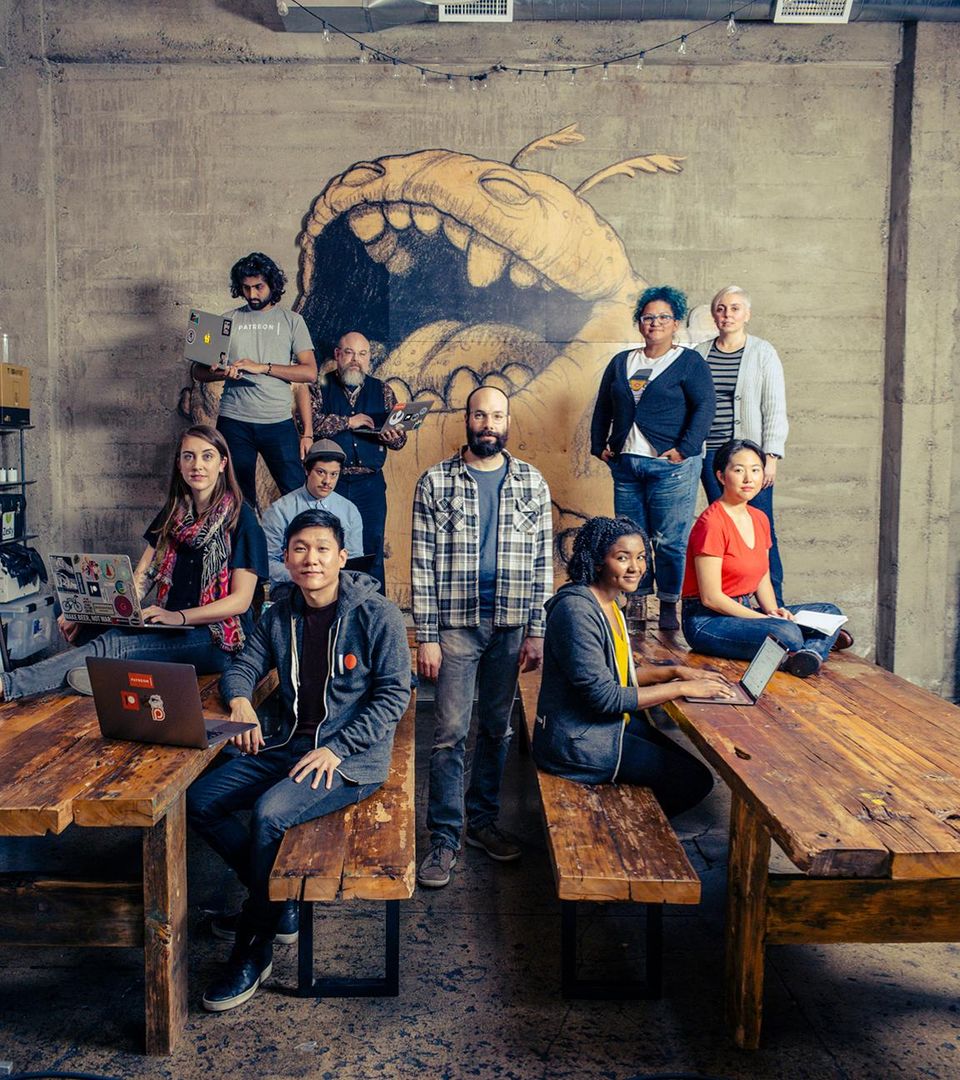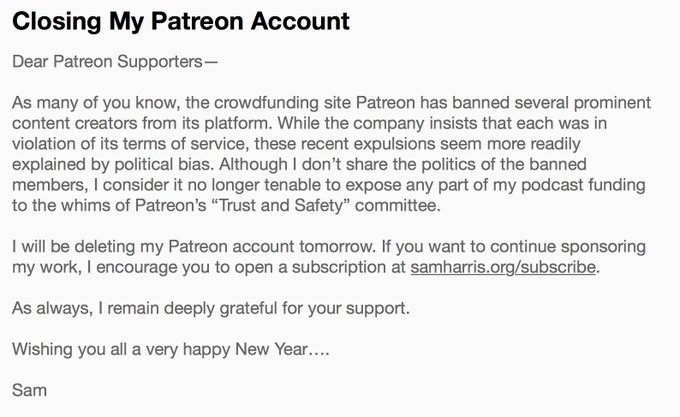
Patronising Bastards? Fast food for the alt-hive mind?
Patreon - 4th industrial echochamber?
note; the following research is a follow up to an investigation into the notion that control of creative dissent can be micro-managed by the corporate machine behind the push for the 4th industrial revolution. Many creative people use Patreon in a similar way to the platforms of olden days...Mp3.com - Besonic - more recently Youtube, Facebook, Twitter, Soundcloud & instagram - as a way to release content and receive benefits they simply cannot find in a world increasingly marginalising them from the physical realm.
Neoliberalism sees $$$ signs in EVERYTHING...even things that seemingly seek to oppose it...everything has a marketable value. So could it be argued that a process of social marginalisation has actually been useful to herd 'Creative content architects' towards this type of platform?
it is no way intended as a slander against the characters of the developers, and those who choose to use patreon as a funding drive initiative - all tech has to have it's backers - but hey! there you go...right? The mighty buck stops nowhere. Integrity is a PR device. And true independence is a lie. I want this to be food for thought - and hopefully educate you into making your platform choices in an informed manner. Taking into account the nature of the beast concerned.
Is Patreon an incubator for Echo chamber culture?
As its name suggests, Patreon is loosely modeled on the arts patronage system of the Renaissance, which produced masterworks like Michelangelo’s Sistine Chapel. It’s the latest turn in the never-ending cycle of ways people have funded “free” art, from federal grants to corporate sponsorships to, most recently, impression-based advertising. While Kickstarter revolutionized how people raise money for games, gadgets, and other products, Patreon is aiming for something far more ambitious: “We want to fund the creative class,” CEO and co-founder Jack Conte tells me. “Ten years from now, we want kids growing up and graduating college and high school to know that being a professional creator is possible. We’re shooting for this cultural sea change.”
"Patreon isn’t simply a replacement for record labels or TV networks, though. Instead it’s the ideal incubator for niche internet subcultures, where a small but dedicated group of fans can directly support work they care about. That includes traditional arts and entertainment, but also YouTube celebrities, cultural figures, or even political actions — some inspiring, some troubling. The Patreon model encourages people to see themselves not as consumers, but as members of a private club, free from the constraints of mainstream gatekeepers or mass-market appeal. "
The Verge - Inside Patreon, the economic engine of internet culture
"In an impact investment scenario, media messaging must ultimately advance the interests of funders. Funders will pay content providers for desired behavior change. Narratives will be weaponized not only as propaganda, but as profit centers via innovative financial instruments like impact securities. Articles, tweets, comments, video clips, feature films, online games, even virtual simulations will be coordinated to achieve (or impede) social change. Powerful investors will use their largesse to compel digital media influencers to deliver (or withhold) votes, catalyze (or suppress) protest, and deliver (or derail) accountability to the public."
Wrench in the gears look further
Don’t Let Impact Investors Capture The Non-Profit, Activist Media!
very happy startup people
|





